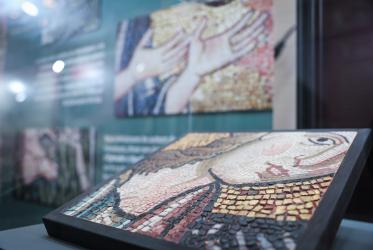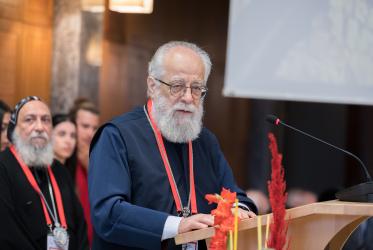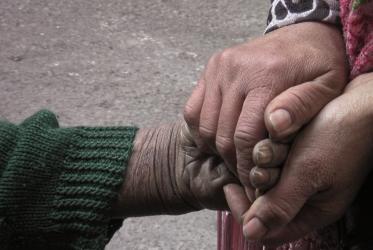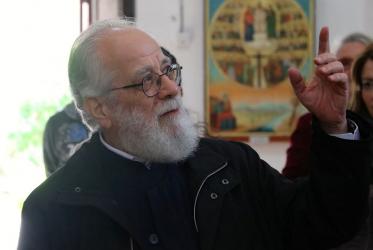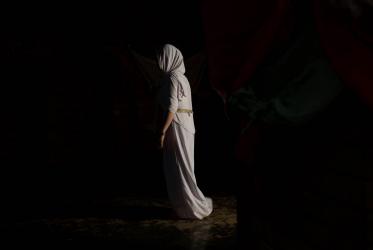Displaying 1 - 20 of 42
Exhibition “Bethlehem Reborn – Palestine – The Wonders of the Nativity”
12 September - 05 October 2023
Ecumenical Center, Geneva, Switzerland
Palestinian delegation visits WCC
07 July 2023
New student body at Bossey Ecumenical Institute “a source of joy”
14 September 2020
Lebanon meeting explores vision for more inclusive global church
07 February 2020
Grand Imam calls for collaboration against violence and poverty
06 October 2016
WCC welcomes Grand Imam of Al-Azhar
01 October 2016
Owe Boersma will strive for equilibrium as EAPPI coordinator
18 August 2016
Beirut workshop fosters cooperation on diakonia
14 June 2016
Voices of faith speaking to voices of fear
03 February 2016
